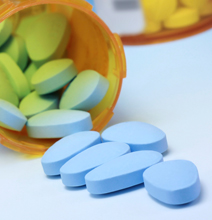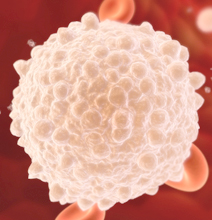Mechanisms
Different types of substances with distinct mechanisms are used in targeted cancer therapies: from molecules so small that can they enter the cell to act on its nucleus, to larger ones that interact from the outside with the cellular membrane (for example monoclonal antibodies ).
These different mechanisms can:
INTERFERE WITH THE MULTIPLICATION AND DIVISION OF THE TUMOUR CELLS
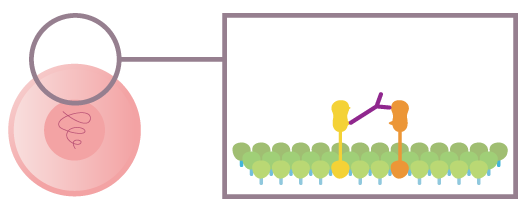
The medication interacts with molecules on the surface of the tumor cells stopping their multiplication.
INDUCE TUMOUR CELLS’ DEATH (a process called APOPTOSIS)
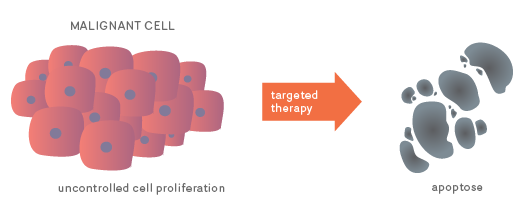
Despite cancer's well-known ability to resist death (this “immortality” is one of its hallmarks), targeted therapies can overcome this by inducing apoptosis (a programmed sequence of events to kill cells, normally unwanted or diseased ones).
BLOCK BLOOD VESSELS FORMATION (ANGIOGENESIS)
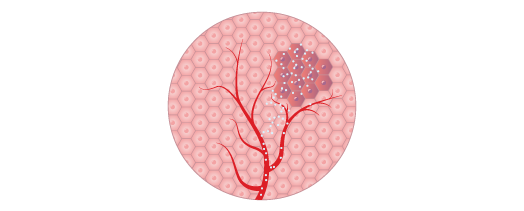
Another hallmark of cancer is their ability, by releasing chemicals, to stimulate the formation of new blood vessels (a process called angiogenesis). These will provide nutrients and oxygen to feed the fast-dividing cancer cells, allowing the tumor to grow.Some targeted therapies can interact with the tumor chemicals or the blood vessels to inhibit further growth


